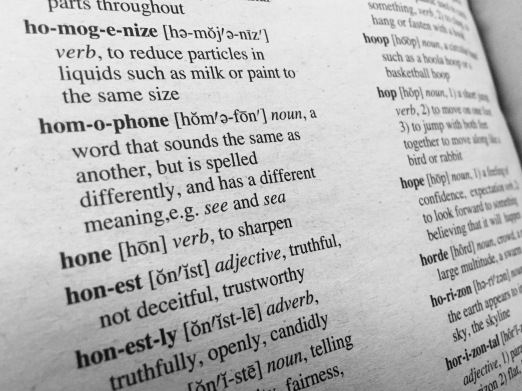
Technically, you can drop the bass—and the bass. You can literally drop the bass, but that could cause injury to your foot, so it’s recommended that you only drop the bass in the musical sense, if you are talented enough to do that. Dropping a bass doesn’t require any talent. In fact, I did it once while out on a fishing boat with family and friends. It was highly embarrassing, but the darn thing was extremely slippery.
Of course, you can also drop the base. Say the umpire calls you “out,” and you decide, in a fit of rage, to pick up the base and drop it. That’s kind of a wuss move though. Better to just throw the thing into the first row and yell some expletives on your way back to the dugout.
Words that have the same spelling but have different sounds or different meanings are called homographs. Wind, like a breeze; wind, like a self-propelled toy.
Homonyms are words that sound alike but have different meanings. Bark, like a dog; bark, like a trees coat. A homophone is a word that sounds the same as another, but is spelled differently. See, and sea.
My personal favorite is “fluke, fluke.” One is utterly disgusting; a type of internal parasite that looks like it crawled directly out of an episode of The X-Files. The other one involves an unlikely outcome, like a humor writer finding mainstream success (present company included).
When reading books of any topic, I find myself constantly confusing my homographs. “Read, read” is extremely difficult for me until I complete the sentence and gain clarity. “Red” is pretty self-explanatory.
I blame the Greeks, though it probably wasn’t their fault. In all likelihood, the creators of the English language, while getting drunk on porters at a pub one winter evening 1400 years ago, decided to completely screw with us.
“We shall create odd occurrences in our written language by giving these words Greek-sounding names, like homograph,” said one drunk Englishman to the other. “History will blame the Greeks.”
“Brilliant,” came the response. “I bow to you, or bow to you.”
Both laughed at their devious, yet ingenious, troll job.
Jerks, weren’t they?
One evening, several years ago, I had a humorous experience with a homonym. While in my backyard enjoying a cocktail (or seven), I noticed a bat flying overhead. Unamused by this brazen intruder into my air space, I retreated into the shed to retrieve my bat—only to be used in self-defense, of course.
Ironic and oddly humorous it was, protecting myself from a bat, with a bat. When explaining this to friends a few days later, no one took as much pleasure in hearing the story as I did in telling it. The moral of this sad tale was clear. These people had no sense of humor or appreciation of the idiosyncrasies of the English language. Therefore, they are no longer my friends.
No bats were harmed in the making of this story.
“Do you write right handed?” asked my eighth-grade English teacher.
“Uh,” I said. “Why can’t you just ask me if I’m right handed?”
I had plenty of time to understand the teacher’s lesson plan on homonyms, homophones, and homographs, as I walked the hallway towards the principal’s office. Technically, I’d done nothing wrong. I wasn’t trying to be mean. She just didn’t understand what I was trying to mean.

Idiosyncratic jokes are the best. Your friends are idiotsyncratics, if you don’t mind me saying so. Writing so, even. Right? Write.
Of course, I grew up in a time and a place where we thought a homophobe was something gay Pete from the video store used to ring his friends on. Ring.
This was a good reed…
LikeLiked by 1 person
Ha!!! I should’ve had you ghost write the peace. 🙂
LikeLike
Hey was I your “muse” with my “confusion” between poles and polls on CWG Election Day? Actually it was autocorrect but it sure set the stage for one heck of a laugh. Funny funny as always!!
LikeLiked by 1 person
I remember that, and while it wasn’t the inspiration behind the post, it definitely came into play.
LikeLike
I thought homonyms a strange topic to make light of, till your wit showed me the light!
LikeLiked by 1 person
Ha! I only felt confident when I paired bat, with bat. 😏
Thanks, as always, for the kind words!
LikeLike